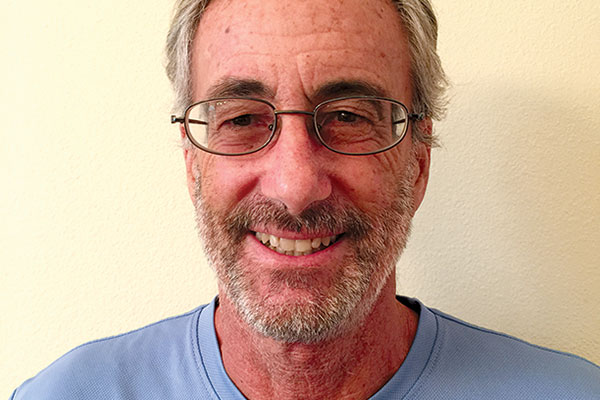Finding My Strength
How Coming to Terms with My Prostate Cancer Diagnosis Became a Transformative Experience
by Richard S. Hillman
When I heard the doctor say prostate cancer, it felt as if I was struck by a bolt of lightning. My wife, Audrey, and I had moved to Florida to enjoy an active retirement. A few sets of tennis and a swim were on our daily agendas. Not this. It seemed our world would crumble.
“Treatment is risky,” I said. Audrey gave me an accusatory look. “I don’t want you to die any time soon,” she said. Was she trying to scare the hell out of me?
“I’d be half-dead with erectile dysfunction or incontinence,” I whispered. My healthy lifestyle and overall fitness had imbued me with a sense of invincibility. Mortality had always been a theoretical concept, the subject of college debates or accountants’ actuarial charts. But now, life had become fragile and tenuous. My heart throbbed like a frightened child’s.
Audrey read me like a book: “Don’t be a baby! What good is dwelling on worst-case scenarios? If it metastasizes …” Visions of discolored, rotten tissue spreading through my guts sent chills down my spine.
The anger which had supplanted my fear gradually subsided, and I opted for two months of IMRT, intensity-modulated radiation therapy. In the radiation oncology waiting lounge, we saw people representing a diverse spectrum of ages, races, and social groupings. None looked particularly nervous. I tried to relax, yet felt like a fish out of water. My self-image as an athletic macho was being tested.
“How are you today?” the nurse asked.
“Anxious.” Knowing that doubt and fear would exacerbate my physical condition did not prevent me from becoming an insomniac obsessed with my health.
“That’s natural,” she said. Ironically, the signs adorning the hospital walls were disquieting: “Live in the moment!” “Have faith!” These admonishments to focus on the bright side had the opposite effect on me.
My imagination had often frazzled my nerves. Irrational fear and negativity resulted in nightmares and fatigue.
During radiation sessions, I had to remain still while the machine hovered around me. I felt like the subject of a scientific experiment, although background music and a photographic mural on the ceiling provided pleasant diversions. “You might experience fatigue, urinary burning, or diarrhea,” my doctor said, “but nothing we can’t deal with.”
Throughout treatment, I continued to play tennis and swim. My life went on as normal. Yet, in some ways, it was on hold. I felt as if I were in limbo, a difficult position for someone who seeks certainty. Impressed and heartened by the supportive atmosphere, and with Audrey continuously at my side, I began to feel hopeful. “Just relax. You’re in good shape. Keep active,” everyone encouraged. But that did little to assuage my lingering apprehension that the entire experience was illusory.
Most people are shocked when they hear the words prostate, cancer, or radiation. Friends either are at a loss for words or try to commiserate. Family members want to console. Those who had prostate cancer want to share their experiences. The problem is that each person’s age, physical condition, emotional status, and stage of the disease call for different approaches. It felt as if Audrey and I were on a lonely journey.
My imagination had often frazzled my nerves. Irrational fear and negativity resulted in nightmares and fatigue. Yet hope and optimism produced physical strength and a sense of well-being. So I had to trust expert opinions regarding numerical ranges and probabilities, something that does not come easy to a skeptic. The fellow who preceded me in the treatment room invariably remarked with a broad smile, “Get in there and kill those critters!” His down-to-earth testimony to the power of a positive attitude inspired me to face reality head on.
Audrey helped me stay on schedule. As treatment progressed, time appeared to accelerate, and, finally, the last session snuck up on us. Shortly thereafter, a heavy weight seemed to fall off my shoulders when we were informed that the treatment had been effective. Initially, my fear caused denial, anger, and depression. Yet this challenge, accompanied by caring support, evoked a newfound humility and strength in me. For this, as a prostate cancer survivor, I am truly grateful.
Richard S. Hillman, a prostate cancer survivor living in Hudson, FL, is the author of Tropical Liaison, a political thriller set in the Caribbean.
This article was published in Coping® with Cancer magazine, November/December 2016.


